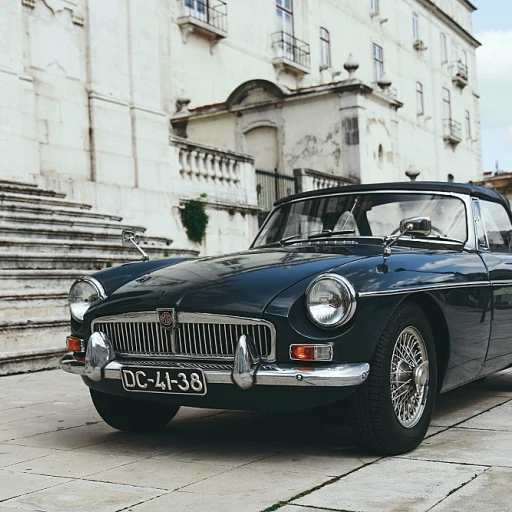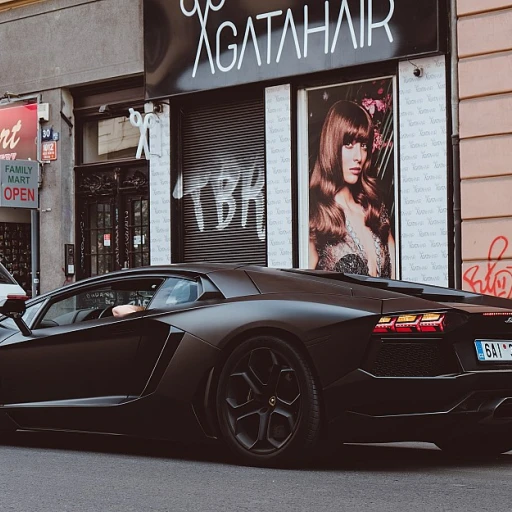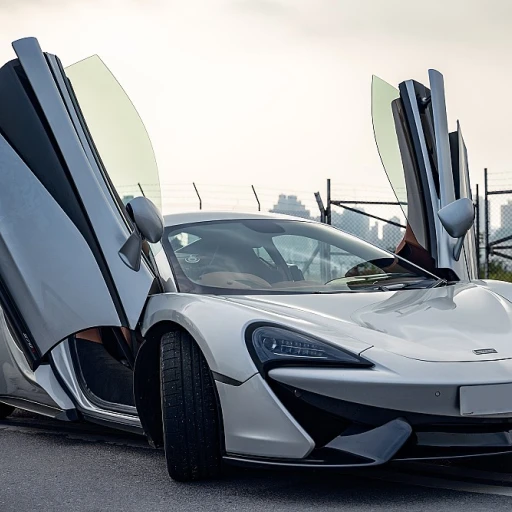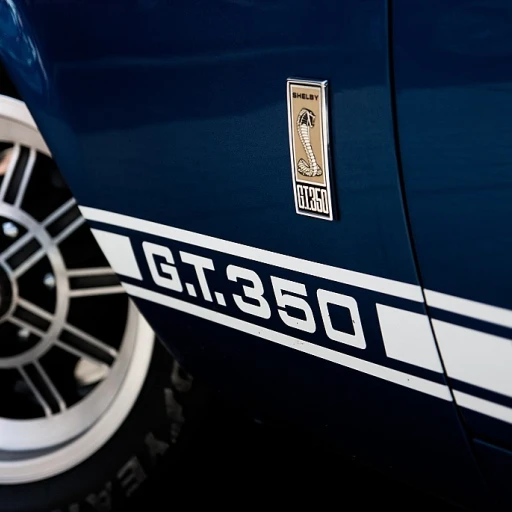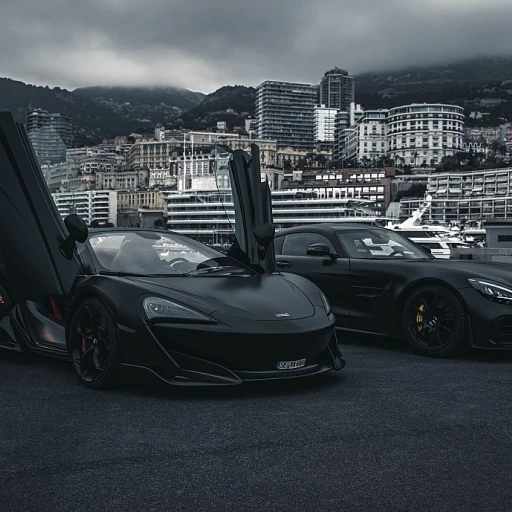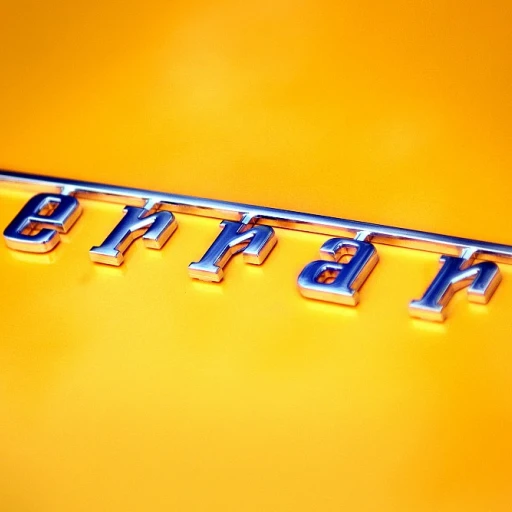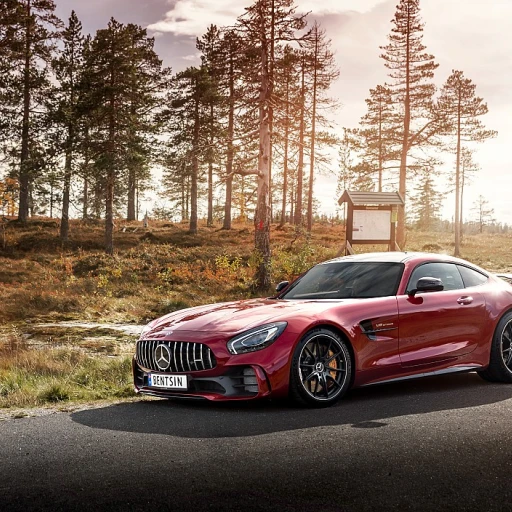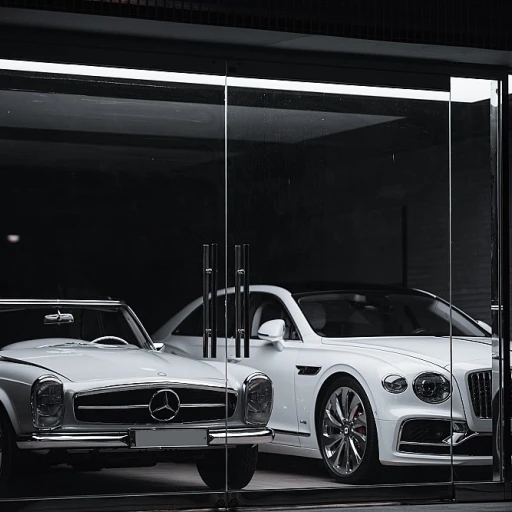
The legacy of luxury: a look into the history of top car brands
The birth of iconic marks: mercedes-benz, bmw, and audi
When it comes to luxury car brands, Germany stands out with its iconic line-up: Mercedes-Benz, BMW, and Audi. These brands didn't just emerge overnight; their roots run deep, with stories dating back to the early 20th century.
Mercedes-Benz, for instance, traces its origin to Karl Benz's creation of the first petrol-powered car in 1886. Fast forward to today, and Mercedes-Benz is known globally for its innovation, elegance, and unmatched engineering. BMW, which began its journey in 1916 as an aircraft engine manufacturer, switched gears to automobile production after World War I. Their relentless focus on driving dynamics and sheer driving pleasure has made the BMW series a top pick among enthusiasts.
Audi, another heavy hitter in the luxury segment, has its foundation in 1909 with August Horch. Over the years, Audi has positioned itself as a leader in technology and design, boasting the famous tagline "Vorsprung durch Technik" - "Advancement through Technology."
Legacy in britain: rolls-royce and bentley
The British have their fair share of legendary luxury car brands, and two names that echo timeless elegance are Rolls-Royce and Bentley. Founded in 1904, Rolls-Royce has consistently set the benchmark for luxury and opulence. Their meticulous attention to detail and bespoke craftsmanship result in vehicles that are more akin to mobile works of art than just cars.
Bentley's story, which began in 1919, is a tale of unparalleled luxury intertwined with a rich racing heritage. Bentley not only produces some of the most comfortable and luxurious vehicles in the world but also some of the fastest, with models like the Continental GT exemplifying this duality.
The rise of american luxury: cadillac
Across the Atlantic, Cadillac stands as a testament to American innovation and luxury. Founded in 1902, Cadillac became synonymous with the American dream. By introducing groundbreaking technologies such as the electric starter and the V8 engine, Cadillac solidified its place as a pioneer in the automotive world.
Cadillac cars have always been about bold designs and powerful performance, embodying the spirit of the United States. Known for models like the Escalade, Cadillac's influence in the luxury segment cannot be overstated.
Japan's precision: lexus
Japan entered the luxury car market with a splash through Lexus. Launched by Toyota in 1989, Lexus quickly garnered a reputation for reliability, comfort, and cutting-edge technology. Unlike its European counterparts, Lexus focused heavily on the "relentless pursuit of perfection", which resonated with a global audience.
The success of models like the Lexus LS and the RX SUV showcase Japan's ability to marry precision engineering with luxury, creating vehicles that are both practical and supremely comfortable.
Embracing the future: tesla
No discussion on luxury car brands is complete without mentioning Tesla. Founded in 2003 by Elon Musk, Tesla has disrupted the automotive industry by proving that electric vehicles can be both luxurious and high-performing. With cutting-edge technology and a commitment to sustainability, Tesla models like the Model S and Model X have redefined modern luxury and performance.
As the brand continues to innovate with features like autonomous driving and over-the-air updates, Tesla remains at the forefront of the automotive industry's shift towards electric vehicles.
Performance and innovation: what sets luxury cars apart
Unwavering excellence in luxury car engineering
When discussing what sets luxury cars apart from their standard counterparts, the focus invariably turns to performance and innovation. It’s not just about speed and power; luxury car brands like Aston Martin, BMW, and Mercedes-Benz master the art of engineering, fusing cutting-edge technology with impeccable craftsmanship to deliver an unparalleled driving experience.
The finesse of advanced engineering
BMW’s engineering precision is evident in the BMW Series, particularly in models like the BMW 7 Series, which blends a powerful engine with luxurious comfort. The brand’s use of lightweight materials such as carbon fiber-reinforced plastic not only enhances performance but also improves fuel efficiency. According to a report from Stratista, BMW accounted for about 7.1% of the luxury car market share globally in 2022, illustrating its strong focus on engineering excellence and innovation.
Tech integration: a step ahead
Mercedes-Benz is another trailblazer in integrating technology with luxury. The Mercedes-Benz S-Class is renowned for its cutting edge technology, featuring advanced systems such as the MBUX (Mercedes-Benz User Experience) that provides an intuitive interface and autonomous driving capabilities. The brand consistently invests in research and development, dedicating around €10 billion annually, showcasing its commitment to innovation.
Performance redefined: Porsche and Tesla shining
Porsche's legendary models, like the Porsche 911, illustrate how luxury cars can marry high performance with sophistication. With a top speed of over 190 mph and 0-60 mph acceleration in just 3.5 seconds, it’s clear why Porsche remains an icon in the world of high-performance vehicles. Meanwhile, Tesla redefined luxury performance with electric cars like the Tesla Model S, which boasts an incredible acceleration of 0-60 mph in just 2.3 seconds – a noteworthy achievement for a sustainable vehicle.
Case study: Lexus
Lexus showcases how consistent innovation can lead to market dominance. With the introduction of the Lexus LS in the late ’80s, the brand has centered its philosophy around combining luxury with cutting-edge hybrid technology. The LS 500h exemplifies this approach, utilizing a Multi Stage Hybrid System to deliver both power and efficiency, a feat that has garnered significant praise from consumers and industry experts alike.
Conclusion: blending performance and plushness
It's evident that the top luxury car brands do not just vie on lavishness but also excel in pushing the envelope of performance and technology, creating vehicles that are not only status symbols but also marvels of modern engineering. From the ground-breaking tech of Mercedes-Benz to the sheer power of BMW and Porsche, luxury cars indeed set the bar high for the entire automotive industry.
Luxury SUVs: combining elegance with practicality
Bringing sophistication to everyday drives
Luxury SUVs masterfully blend the elegance of upscale sedans with the practicality of family vehicles. Brands like Mercedes-Benz, BMW, and Lexus top customer lists, offering models that don’t merely serve a purpose but turn heads on the road. For instance, the Mercedes-Benz GLE-Class consistently ranks among the best luxury SUVs with its sophisticated interiors, robust performance, and innovative features. According to the U.S. News & World Report, the GLE 350 4MATIC segment holds a prestigious position with an overall score of 8.4 out of 10.
The perfect mix of luxury and utility
When purchasing a luxury SUV, consumers are prioritizing both comfort and functionality. This dual demand has driven the design of models like the BMW X5, which offers ample cargo space without compromising on its luxurious interior or performance. Recent market data from Statista indicates that nearly 12% of all luxury vehicle sales in 2021 were SUVs, highlighting their growing appeal. The seamless fusion of high-end aesthetics and everyday convenience is what’s making SUVs a significant player in the luxury sector.
High performance on all terrains
Luxury SUVs aren't just about looks—they pack a punch when it comes to performance too. Take the Porsche Cayenne for example. This model offers the power and agility of a sports car with the body and space of an SUV. Porsche itself boasts of the Cayenne's engine prowess, with the Turbo GT variant accelerating from 0-100 km/h in just 3.3 seconds. It’s the epitome of refined power and speed.
Standing the test of time
Models like the Range Rover have remained synonymous with status and luxury for decades. The Range Rover combines off-road mastery with first-class interiors, catering to those looking for more than just city commutes. According to a detailed study by J.D. Power, the Range Rover consistently scores high in the APEAL (Automotive Performance, Execution, and Layout) Index, showing high customer satisfaction among luxury SUV buyers.
Visit our comprehensive guide for exploring the top 20 luxury cars to delve deeper into the marques that dominate the luxury car market.
Country of origin: how heritage influences luxury car brands
Germany: birthplace of automotive excellence
Germany stands tall as the cradle of luxury cars. Renowned for unparalleled precision and engineering, German brands like BMW, Mercedes-Benz, Audi, and Porsche have long set the standard for high-end vehicles. The country's rich automotive heritage traces back over a century, positioning it as an industry leader globally.
United Kingdom: blend of heritage and luxury
The United Kingdom boasts a deep-rooted tradition in crafting luxury cars. Brands such as Rolls-Royce, Bentley, and Aston Martin epitomize British elegance and sophistication. These cars, often referred to as the epitome of luxury, reflect the meticulous craftsmanship and timeless designs that have kept these names at the forefront of the luxury car market.
Japan: the rise of innovation and reliability
Japan has steadily emerged as a strong contender in the luxury car segment. Brands like Lexus and Infiniti represent a fusion of advanced technology with exceptional reliability. The Japanese approach focuses on precision and performance, aiming to redefine luxury through innovation. For a deeper dive into this, you can explore the details in our dedicated analysis.
USA: luxury with muscle and style
The United States brings a distinctive flair to the luxury car market with brands like Cadillac and Lincoln. These cars are known for their bold designs and powerful performance. The American approach to luxury emphasizes comfort and technological advancements, appealing to those who seek both style and substance in their vehicles.
Italy: where speed meets artistry
Italian luxury cars, such as Ferrari, Maserati, and Lamborghini, are synonymous with speed and style. Italy's automotive offerings are often described as masterpieces, combining high performance with exquisite design. These brands continue to captivate enthusiasts with their groundbreaking models and show-stopping aesthetics.
The allure of ultra-luxury cars: Rolls-Royce, Bentley, and Aston Martin
Rolls-Royce: redefining ultra-luxury
When you think of Rolls-Royce, images of timeless elegance and unparalleled luxury come to mind. With models like the Phantom and the Ghost, Rolls-Royce has solidified its place as the benchmark for ultra-luxury cars. In 2020, the company delivered 5,586 cars, the highest annual sales in its 117-year history, proving that demand for its bespoke vehicles is soaring.
Rolls-Royce's commitment to quality is evident in its meticulous craftsmanship. Each Rolls-Royce vehicle is hand-built in Goodwood, England, with a single car requiring over 400 hours to complete. The brand's attention to detail is so precise that they've patented systems like the Starlight Headliner, which mimics a starry night using hundreds of fiber-optic lights.
Experts like Tim Urquhart from IHS Markit emphasize that Rolls-Royce's success lies in its ability to blend heritage with cutting-edge technology. This perfect fusion ensures that each vehicle offers a unique, tailored experience for its owner.
Bentley: a blend of heritage and modernity
Bentley stands as another pillar of the ultra-luxury segment. Founded in 1919, the brand has a storied history marked by its wins at the Le Mans 24-hour race. Today, Bentley's claim to fame includes models like the Continental GT and the Bentayga SUV. The Bentayga, often credited as the first true ultra-luxury SUV, has been a game-changer, tapping into the growing market for luxurious yet practical vehicles.
Bentley's sales figures reflect its strong market position. In 2021, Bentley reported its highest-ever annual sales, delivering 14,659 cars, up 31% from the previous year. According to Adrian Hallmark, Chairman and CEO of Bentley Motors, the brand's success is attributed to its investment in sustainable luxury, including hybrid and electric models.
Customer testimonials consistently highlight Bentley's perfect balance of speed, comfort, and elegance. Adam Smith, a long-time Bentley owner, states, "Driving a Bentley is an experience like no other—it's not just a car; it's a statement of sophistication and power."
Aston Martin: British elegance meets performance
Aston Martin epitomizes the marriage between British elegance and raw performance. Known for iconic models like the DB11 and the Vantage, Aston Martin has captured the hearts of enthusiasts for decades. According to a 2022 JD Power report, Aston Martin ranks highly among luxury sports car brands for customer satisfaction.
In recent years, Aston Martin has expanded its lineup to include the DBX, its first-ever SUV, aiming to compete with brands like Bentley and Rolls-Royce in the ultra-luxury SUV market. This strategic move seems to be paying off, as the DBX accounted for more than 20% of the brand's global sales in 2021.
Experts like Alex Taylor of Car and Driver highlight how Aston Martin's adaptive suspension systems and luxurious interiors make each drive an unforgettable experience. "Aston Martin offers a blend of performance and refinement that's hard to match," Taylor notes.
Whether you lean towards the handcrafted opulence of Rolls-Royce, the timeless elegance of Bentley, or the performance-driven allure of Aston Martin, these brands continue to define and dominate the ultra-luxury car market. They each offer a unique experience, ensuring their vehicles remain the golden standard in luxury and performance.
Luxury sports cars: speed meets sophistication
The sheer thrill of the ride: exploring luxury sports cars
When it comes to blending speed with sophistication, luxury sports cars are in a league of their own. From the iconic Porsche 911 to the electrifying Tesla Model S, these vehicles are the epitome of performance and prestige.
Porsche: a legacy of precision engineering
The Porsche 911, perhaps the most recognizable sports car in the world, combines decades of racing heritage with cutting-edge technology. With a starting price of around $100,000, the 911 offers various models, each tailored for different driving experiences. Car and Driver described it as “an almost perfect sports car.” (Source: Car and Driver)
Its turbocharged engines, rear-engine layout, and impeccable handling make it the darling of enthusiasts. Don't forget, over 70% of all Porsches ever built are still on the road today—a testament to their superior build quality.
Tesla model s: the electric revolution
Tesla's Model S has redefined what we can expect from a luxury sports car. This all-electric vehicle goes from 0 to 60 mph in as little as 2.4 seconds, outpacing many traditional supercars. Elon Musk wasn’t just aiming for luxury; he wanted to dominate the performance charts. The Model S is a full-sized sedan, but its performance metrics compete with the best brands in the industry.
The best part? It’s not just fast; it’s also packed with cutting-edge technology, from autopilot features to over-the-air software updates. Inside EVs reported that the Model S was the best-selling luxury car in the United States for several consecutive quarters. (Source: Inside EVs)
Aston martin: british elegance with roaring performance
When anyone mentions sophisticated style and blistering speed, Aston Martin is always part of the conversation. Originating from the United Kingdom, this brand offers a perfect blend of luxury and performance. Their latest models, like the DB11 and Vantage, promise thrilling rides without compromising on comfort or elegance.
This balance of power and luxury is what has kept Aston Martin at the pinnacle of the sports car world. Rolls-Royce might have the ultra-luxury segment locked down, but Aston Martin focuses on delivering a thrill-a-second type of luxury.
Want to know more about Aston Martin's illustrious journey? Dive in here.
Ferrari and lamborghini: the italian maestros
Ferrari and Lamborghini are almost synonymous with luxury sports cars. The Ferrari 488 Pista and Lamborghini Aventador push the envelope with their V8 and V12 engines, respectively. These car brands captivate with their aerodynamic designs, meticulous craftsmanship, and breathtaking performance.
Forbes once highlighted that these Italian brands prioritize performance almost as much as they value brand prestige. It’s an age-old rivalry that drives each brand to outdo the other, season after season.
Jaguar: the silent performer
Jaguar may not be the first name that comes to mind, but their F-TYPE is a beauty to behold and a force on the track. With options ranging from a 296-hp turbocharged four-cylinder to a 575-hp supercharged V8, the F-TYPE is versatile and thrilling.
Interestingly, this British brand combines luxurious finishes with a raw yet refined driving experience. Auto Express lauded the F-TYPE as one of the most stylish and performance-oriented sports cars on the market. (Source: Auto Express)
Best-selling luxury cars: a look at market leaders
Top-selling luxury cars of recent years
Luxury brands have a knack for crafting vehicles that not only exude opulence but also resonate with a significant number of affluent buyers worldwide. The blend of advanced engineering, state-of-the-art technology, and unparalleled comfort keep these cars at the forefront of the market. Here’s a closer look at some of the market leaders in the luxury segment.The dominance of German manufacturers
It’s no surprise that German car brands frequently top the charts in the luxury market. BMW, Mercedes-Benz, and Audi lead the pack with their meticulously crafted models. For instance, the Mercedes-Benz E-Class, with its elegant design and cutting-edge features, consistently ranks high in sales. The BMW 5 Series follows closely, admired for its balance of sporty performance and luxurious comfort.Cadillac’s resurgence in the luxury segment
In the United States, Cadillac has made significant strides in reclaiming its position within the luxury market. The Cadillac Escalade, with its imposing presence and plush interiors, remains a favorite among luxury SUV buyers. Sales figures indicate a strong demand, with Cadillac experiencing a notable resurgence over the past few years.Emerging contenders: Tesla's innovative impact
Tesla has undeniably reshaped the luxury car market with its electric vehicles. The Tesla Model S and Model X stand out with their innovative technology and impressive range. Tesla’s appeal lies not only in its green credentials but also in the sheer performance and futuristic features, making it a strong contender in the luxury segment.Best sellers from the UK and beyond
British brands like Land Rover and Bentley also make a significant impact. The Land Rover Range Rover, a symbol of luxury and rugged capability, remains a top seller among luxury SUVs. On the ultra-luxury front, Bentley’s Continental GT frequently garners attention for its exquisite craftsmanship and powerful performance.Luxury SUVs: a growing market
Luxury SUVs continue to grow in popularity, merging practicality with opulence. The Porsche Cayenne, BMW X5, and Audi Q7 showcase how versatility and luxury can coexist, making them among the best-sellers in their category.Insights from industry experts
According to a report by J.D. Power, luxury vehicles are expected to account for nearly 14% of the U.S. automotive market in the coming years. Jessica Caldwell, an executive director of insights at Edmunds, states, “The demand for luxury brands like BMW and Mercedes-Benz remains strong, driven by consumer preference for high-performance and tech-savvy vehicles.” The best-selling luxury cars mirror consumer preferences for a blend of sophistication, performance, and cutting-edge technology, driving the market forward and setting new benchmarks for what luxury truly means.The future of luxury cars: trends and predictions
The shift towards electric luxury cars
The landscape of luxury car brands is undergoing a significant transformation with the advent of electric vehicles (EVs). Brands like Audi, BMW, and Mercedes-Benz are leading the charge, blending advanced technology with impeccable luxury. A recent study by BloombergNEF revealed that electric vehicles could represent 58% of new passenger car sales worldwide by 2040. This shift is driven by both consumer demand for eco-friendly options and government regulations aimed at reducing carbon emissions.
Integration of AI and autonomous driving technologies
Another trend that's shaping the future of luxury cars is the integration of artificial intelligence and autonomous driving technologies. Tesla's Model S, known for its cutting-edge tech, is a prime example. According to a report by McKinsey & Company, the market for autonomous vehicles could reach $300 billion by 2035. Luxury brands are at the forefront, offering features that enhance both safety and convenience. Mercedes-Benz's EQS and BMW's iX are notable mentions, showcasing advancements in self-driving capabilities and AI-driven user experiences.
Focus on personalized experiences
Modern luxury car buyers are increasingly seeking personalized experiences. Brands are responding with customizable interiors, tailored driving settings, and unique design elements. Porsche's Exclusive Manufaktur program allows buyers to customize everything from the stitching on their seats to the color of their brake calipers. This trend underscores the shift towards making luxury vehicles not just a status symbol, but a personal statement.
Sustainable luxury materials
Sustainability is becoming a key factor in the luxury car market. Brands are investing in eco-friendly materials and manufacturing processes. For instance, BMW's i3 model uses recycled and renewable materials, while Land Rover incorporates sustainable fabrics in their Range Rover models. This move towards sustainability is not just about reducing the carbon footprint but also about aligning with the values of modern consumers who are more environmentally conscious.
Connectivity and over-the-air updates
The future of luxury cars will undoubtedly feature enhanced connectivity and the ability to receive over-the-air updates. This capability allows car manufacturers to improve vehicle functionalities post-purchase. Tesla pioneered this feature, and now other luxury brands are following suit. Audi's MMI touch response, for instance, is a system that is continually updated to offer new features and functionalities, ensuring that the vehicle evolves with its owner.
Emerging markets and the expanding luxury car demographic
The demographic of luxury car buyers is expanding, especially in emerging markets. According to a report by Statista, the global luxury car market is projected to grow from $542 billion in 2019 to $765 billion by 2027. Regions like China and the Middle East are seeing a surge in demand for high-end vehicles. Brands are capitalizing on this by offering models that cater to the tastes and preferences of these new markets, from ultra-luxury sedans to high-performance SUVs.
Electric vehicle charging infrastructure
A key component in the future of luxury EVs is the development of EV charging infrastructure. Governments and private companies are investing heavily in creating a network of rapid chargers. As of 2020, there were approximately 1.3 million public charging points worldwide, according to the International Energy Agency (IEA). Mercedes-Benz and Audi are among the brands that are investing in their own charging networks to enhance the ownership experience for their customers.
Collaborations and acquisitions in the tech space
To stay ahead in the technological race, luxury car brands are increasingly collaborating with tech companies and even acquiring them. BMW's partnership with Intel and Mobileye to develop autonomous driving technology is a case in point. Such collaborations are designed to expedite the integration of next-gen technologies into the vehicles, ensuring that brands remain competitive.
Luxury car brands are not just about legacy and tradition anymore; they are rapidly evolving to meet the demands of a modern, tech-savvy, and environmentally conscious audience. As we look forward, the blend of tradition and innovation will define the luxury car market, ensuring these brands continue to set the benchmarks for automotive excellence.

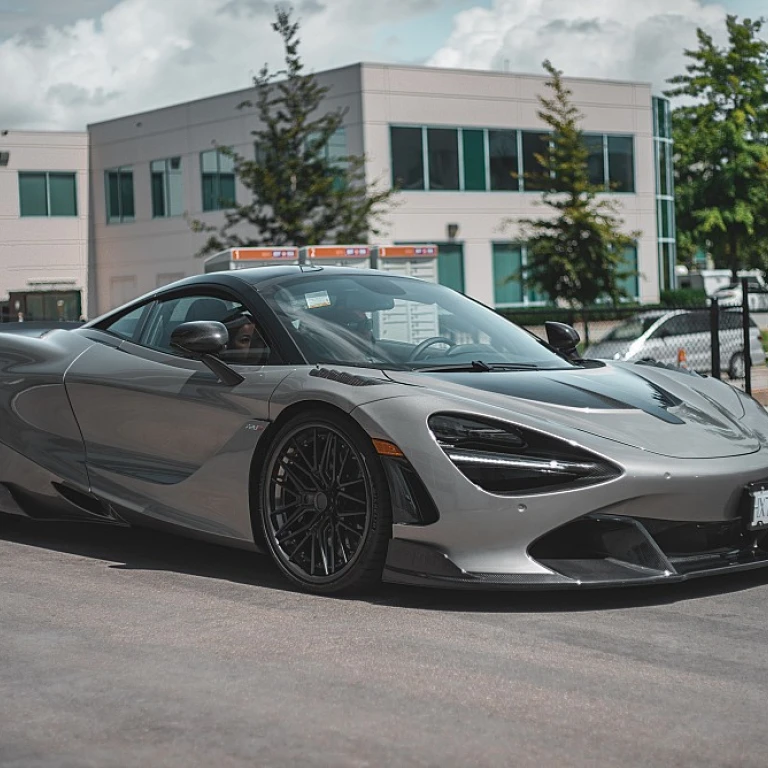
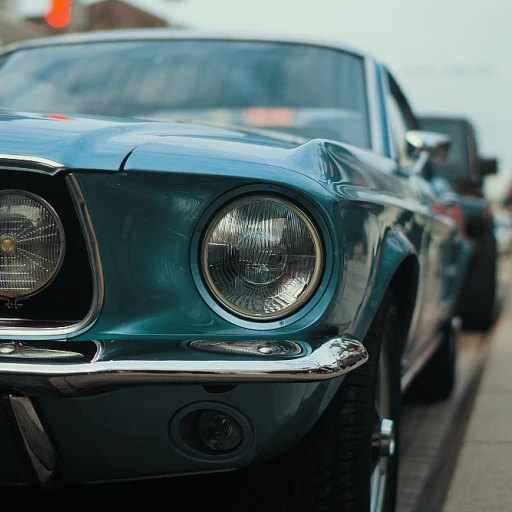
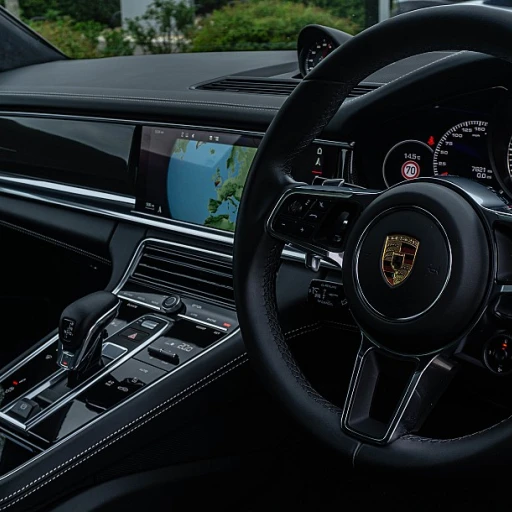
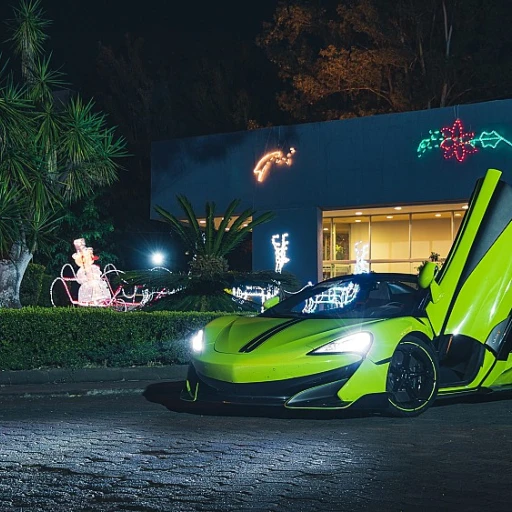
-large-teaser.webp)
